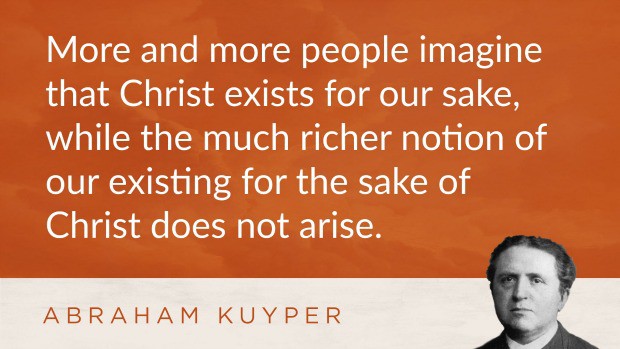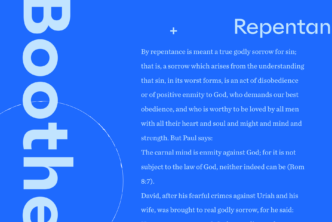“Crown Him with Many Crowns.” “King of Glory.” “You Are My King.” “Lead on, O King Eternal.”
Christians often sing praise songs about Christ as King. But do we really think of him that way?
According to theologian and statesman Abraham Kuyper, far too often the answer is a resounding “no.”
In Pro Rege, a magisterial exploration of the Kingship of Christ, Kuyper outlines the implications of Christ’s reign over every dimension of life. Kuyper says we Christians regularly fail to acknowledge our true place in creation. We aren’t just God’s creation; we are God’s possession:
More and more people imagine that Christ exists for our sake, while the much richer notion of our existing for the sake of Christ does not arise.
Kuyper was not only a theologian, he was a major mover in his culture—a theologian, politician (Prime Minister of the Netherlands, in fact!) and scholar. Though his ministry is a century removed from our experience, his words ring out from the past to us today. While reflecting on the decline of Christ’s kingship in the culture of his day he notes:
[Christians] withdrew from the breadth of life’s activities in order to continue their life of piety in isolation and quiet rest. This made it seem as if the power of nature, the power of science, richer economic development, and the treasures of art were to be abandoned to the world as it dwelt in wickedness, and as if Christianity had nothing to do except to bemoan the ruins of Zion’s walls and to await the return of Christ and the end of all things.
Kuyper could have said the same words last week—yet he wrote these at the turn of the 20th century. Jesus, he said, had been relegated to a purely spiritual role in society, whereas Christ is supposed to be King over all.
Those who do accept Jesus as their Savior and boast in their calling to eternal life, but fail to deduce immediately from it that Christ is their Lord, their King, their complete Commander, and the absolute Controller over their life and lot—over their powers and abilities—run the serious risk of making their names illegible in the book of life. . .
Jesus presents himself as the Shepherd of the sheep, as the Head of the congregation, but then also as the King in his majesty. The sovereignty he has been granted is not nominal, but is clothed with all the authority and power that is necessary to maintain and complete his kingdom.
What if we didn’t confine Jesus’ Kingly reign to the Church alone? Can it be that Christ wants to reign supreme in all? What place should Christ the King take in influencing culture?
The forthcoming volumes of Pro Rege will answer this in detail, in English for the first time. In the meantime, you can see how Kuyper laid the groundwork in Pro Rege, volume 1, available in Logos and print.
***
Want to read more about Kuyper? Be sure to check out the Acton Institute Kuyper Blog and podcast. The Acton Institute is currently translating a 12-volume set on Abraham Kuyper’s works in public theology. Keep an eye out for future volumes to be published by Lexham Press in the next few years!





